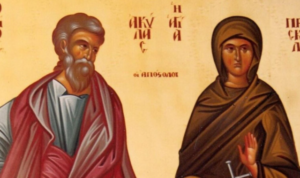According to a special investigative copy of news site “dailycaller.com” signed by journalist Richard Pollock, the small country of Bosnia Herzegovina in the in the southwestern region of Europe, is a hotbed for ISIS terrorists, as it is welcoming battle-hardened foreign jihadist fighters returning from the conflict areas of Syria and Iraq. The long piece claims leaders of both Europe and the US have done nothing to stem the flow of islamist fighters into muslim-majority Bosnia, creating a safe haven for would be attackers and suicide bombers in Europe. From “The Daily Caller”:
Bosnia and Herzegovina — a Muslim-majority country in southeastern Europe more popularly known as “Bosnia” — have put out the welcome mat to the foreign fighters, making it clear that shelter is available to them. Bosnia was formerly part of Yugoslavia, one of the Soviet Union’s Eastern European satellites.
Yet U.S. and European leaders have done nothing about the safe havens. There have been no calls for closing or providing vital counter-terrorism intelligence to local governments that are eager to stem the growing jihadist activity within their borders.
Bosnian Muslims, known as “Bozniaks,” provide the largest number of ISIS fighters per capita of any European nation. Youth unemployment in the country is among the highest in the world — 60.2 percent in 2016 — higher than youth unemployment in Yemen, Tunisia or the Gaza Strip. Counter-terrorism experts report that increasing numbers of ISIS fighters are returning to Bosnia as the infamous Islamic jihadist group suffers continued military setbacks in Syria and Iraq. Diplomats and security specialists warn that the safe haven enclaves called “Jamaats” are a dagger at the doorstep of Europe. People residing in one of the largest Bosnian Jamaats recently flew ISIS flags and emblems on their homes. The flags were taken down after Reuters reported on it.
The Bosnian Jamaats permit seasoned foreign fighters to rest, change identities, obtain weaponry, gain easy access to laundered money and surreptitiously enter Western European nations. More than 60 of the 200 Jamaats operate in Bosnia. The other neighboring Balkan countries harboring terrorists in the special enclaves are Kosovo, Macedonia, Albania and Serbia’s Sandzak region.
“Bosnia is a way station, it’s a resting area for those who tend to do harm in the West,” Balkans expert Henry Jones told TheDCNF. Jones advised President Milorad Dodik of the Balkan Republic of Srpska, once known as “Serbia,” from 2007 to 2013.
Financed by wealthy Iranian and Persian Gulf businessmen, the Jamaats are strictly off-limits to local Balkan governments, police or intelligence services.
“The real issue is that no one seems to know what happens inside these areas,” Jones said. “They have their private security forces. The police usually don’t go in. And you don’t go in if you’re an outsider,” he noted.
Gordon N. Bardos, president of SEERECON, a strategic advisory and political risk-analysis firm for clients doing business in southeast Europe, told TheDCNF Jamaats have become “extraterritorial enclaves” within sovereign countries.
“They established these radical-controlled villages that almost function as extraterritorial enclaves within Bosnia. They set up these enclaves in remote villages in the region, establishing financial networks to transfer money, providing people with new identities or false identities,” Bardos said.
“They get new identities and they can start all over again and travel around the world. These are remote areas where they can hold paramilitary-style training — people who are hiding on the run,” he added.
“Right now, they are forming a perfect safe haven in the underbelly of Europe,” said Jovan Kovacic in an interview with TheDCNF. Kovacic is co-founder and president of East-West Bridge International, an independent think tank that monitors events in the Balkan region.
“I see it as a breeding ground,” Amb. Ralph Jones told TheDCNF. He was the principal deputy high representative, the highest ranking American diplomat of the international body that oversees Bosnian governmental activities.
“I see the threat that’s coming from a safe haven for these people, which allows them to operate in Western Europe but wherever they choose to travel,” Jones warned.
Jamaats have hosted international terrorists since the 1990s when civil war warcked the region. The Clinton administration invited members of Afghanistan’s Mujahedeen to Bosnia to defend the Muslim population during the war.
The Islamic fighters were supposed to leave after the adoption of the Dayton Peace Accords in 1995, but many stayed behind in the enclaves.
“They (the West) allowed the Arabs to set up enclaves in and outside of Sarajevo,” Jones said. “There are villages that are essentially populated primarily by the fighters that came for the war; the Mujahedeen and are still there.”
Bardos recalled the biggest terror attacks against the United States — including the Sept. 11, 2011, attacks — all had Bosnian ties.
“We’re talking about people involved in the 9/11 bombings. We’re talking about guys involved in the USS Cole attack. We’re talking about guys who were involved in the U.S. Embassies in Africa back in August of 1998. All these guys were operating in the Balkans in the 1990s. And they kind of sowed the seeds for a lot of what we’re seeing now,” Bardos said.
The late Richard Holbrooke, the U.S. diplomatic official who was the key negotiator for the Dayton Peace Accords, once mused that if the civil war had not ended in Bosnia, “9/11 would probably have been planned in Bosnia, not in Afghanistan.”
for more dailycaller.com
Ask me anything
Explore related questions





